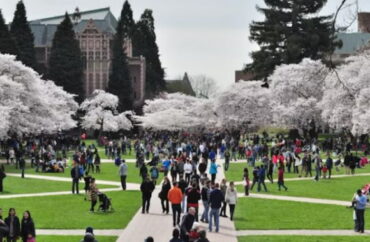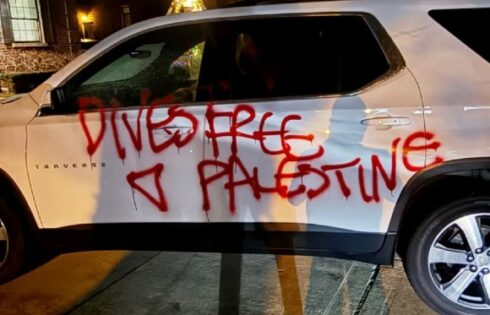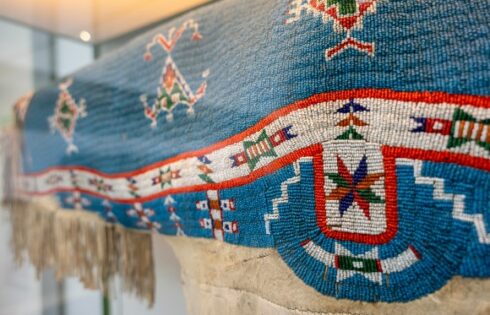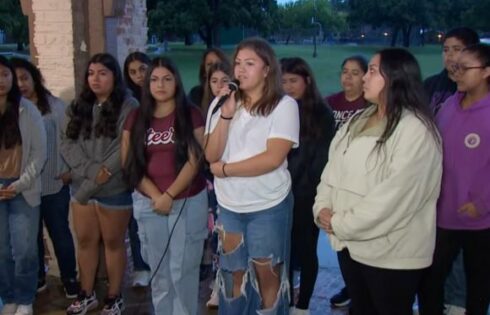
CHICAGO — Given the recent and highly public push back against universities’ diversity, equity and inclusion policies, the general tone at a recent annual conference that draws hundreds of independent-minded scholars from across the nation and beyond was largely optimistic.
The three-day Heterodox Academy conference in early June offered the ambiance of an academic conference mingled with that of an Enlightenment-era salon.
What is the purpose of a university? What principles should guide universities in fulfilling that goal? What are the greatest threats to higher education? What does the future hold for academic institutions?
These were some of the questions scholars discussed in large banquet halls, small conference rooms, and more intimate gatherings during this year’s gathering, held in Chicago.
“Our aim for the conference was to help attendees translate our principles of open inquiry, viewpoint diversity, and constructive disagreement into action on their campuses,” Nicole Barbaro, the academy’s director of communications, told The College Fix.
About 420 scholars registered for the conference, representing more than 250 institutions from mostly the U.S. and Canada, along with some from Mexico, Sweden, the U.K., and Spain, among other countries, she said.
John Tomasi, Heterodox Academy’s president, kicked off the meeting in his opening June 6 keynote with surprised optimism.
“We have in the span of what, two weeks, MIT dropping DEI statements in hiring. … And then Harvard follows up and adopts institutional neutrality regarding statements,” he said, calling the developments “epic.”
Yet, he also cited a poll that showed a dramatic decline in trust people have for colleges and universities in America.
“A free society needs free universities to help create the habits of mind and heart, to create free people, free and democratic people,” he said. “The declining trust in our universities is a disaster for a free society.”
Throughout the conference, dozens of speakers shared their experiences advocating for the principles endorsed by the Heterodox Academy and struggling against illiberal forces in academic environments often overtaken by political activists.
Major plenary sessions included a discussion between Heterodox Academy co-founder Jonathan Haidt and Musa al-Gharbi, author of the upcoming book, “We Have Never Been Woke,” on the origins of the current crisis facing universities, and a talk from astrophysicist Hakeem Oluseyi on the personal attacks he faced after debunking claims that James Webb, the former NASA administrator after whom the James Webb Space Telescope is named, engaged in discriminatory acts against homosexuals during the “Lavender Scare.”
Numerous smaller concurrent sessions were also held with titles like “Teaching Practices: Classroom Management for Constructive Disagreement,” “Viewpoint Diversity in the Ethnic Studies Field,” “Campus Culture after October 7th,” “How Can Faculty Advocate for Policy Change from within the University,” “Women in Heterodoxy,” and “Teaching Practices: Embracing Viewpoint Diversity.”
However, the panel that likely most comprehensively embodied the spirit of the event, while circling back to many of the questions raised throughout, was the conference’s final panel, “Where is the University Going?”
It featured Amna Khalid of Carleton College, Nadine Strossen from New York Law School, Cary Nelson from the University of Illinois, Stanley Fish from the New College of Florida, and Jacob Howland, dean and provost of the University of Austin.
Khalid, a historian and former Heterodox Academy fellow, kicked off the discussion by asserting: “The biggest threat to academic freedom in the university is coming from legislation.”
“We’re turning our back towards this rhino that is going to come and rip us all to shreds,” she said.
Others on the panel, although also concerned about the threat of top-down regulation from politicians, emphasized how problems within academic institutions have made them a target for such threats.
“Markets for the liberal arts…have always been in trouble and are more and more in trouble because [of] questions like ‘What are liberal arts for? What good are they? Are they worth it?” said Fish, a literary theorist and legal scholar. “Questions that have always been asked over dinner parties but now are being asked and answered in distressing ways.”
Similarly, Nelson, a professor of English, said some academic disciplines “are not devoted to the search for the truth.”
“They don’t share that basic principle,” he said. “They are largely devoted to the imposition of unified political belief. … Well, that will not play well in the public.”
Nelson later offered recent examples of how universities have squandered what little public trust they may have once enjoyed: “Pitch battles with the police on campus are not the best possible incarnation of political analysis and higher education.”
Fish seemed to go further, imploring academics to “please drop the moral vocabulary.”
“…We are not moral agents,” he said. “We are not engaged in a noble enterprise. We have a job and we should do that job.”
“…I don’t believe that the university should think of itself as being involved in democracy at all,” he said. “We are not in the democracy business. We are not in the free speech business. We are in the education business.”
Others pushed back.
“Universities have everything to do with democracy not because they themselves are political actors, but they need to create the fundamental conditions that equip our students to be good citizens,” Khalid said.
Howland, a philosopher, added: “I do think that universities actually do have a political function, even though small ‘p’ politics should not be in the classroom.”
When asked via email by The College Fix to weigh in on some of these questions following the conference, Tomasi said: “It has long been an axiom of American higher education that open inquiry and academic freedom are best defended by academic self governance. The classic statement of that view is the AAUP [American Association of University Professors] Declaration of 1915. But even that document set a limit to this claim of self-governance.”
Quoting the statement, Tomasi wrote, “If this profession should prove itself unwilling to purge its ranks of the incompetent and the unworthy, or to prevent [academic self-governance] … from being used as a shelter for inefficiency, for superficiality, or for uncritical and intemperate partisanship, it is certain that the task [of purging it ranks] will be performed by others.”
“…Will that reform be done in a way that actually protects open inquiry, viewpoint diversity, and academic freedom? Here too the jury is still out,” he said.
MORE: Heterodox Academy conference combats lack of viewpoint diversity in higher education
Like The College Fix on Facebook / Follow us on Twitter






Please join the conversation about our stories on Facebook, Twitter, Instagram, Reddit, MeWe, Rumble, Gab, Minds and Gettr.